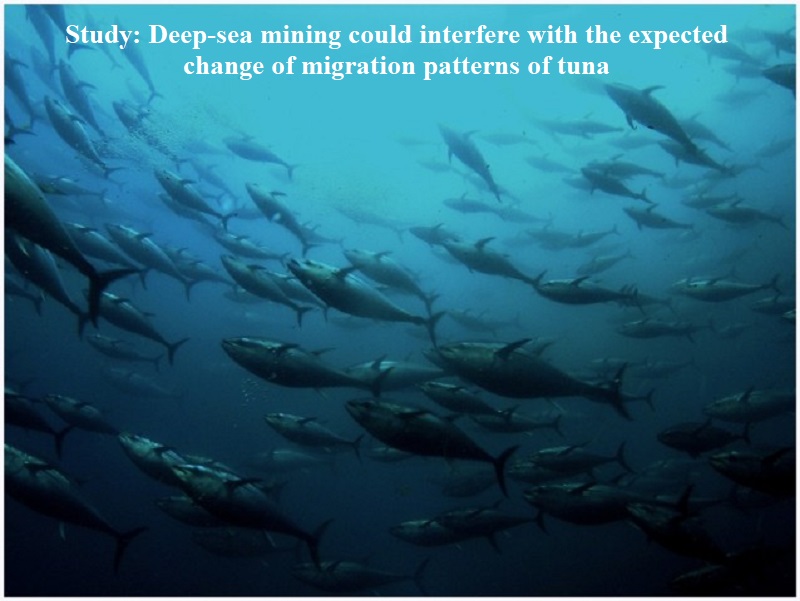
A recent study has revealed that deep-sea mining could disrupt the anticipated migration patterns of tuna, which are driven by climate change, particularly in areas of the Pacific where mining activities are planned. The research findings were published alongside a letter from seafood groups calling for a halt to deep-sea mining plans.
The study, published in the journal Nature npj Ocean Sustainability, focused on the impact of climate change on the migration patterns of three species of tuna. Two climate change scenarios were examined, one with moderate emissions and another with high emissions.
According to the study, the biomass of bigeye tuna is projected to increase by 10-11%, skipjack tuna by 30-31%, and yellowfin tuna by 23% in the Clarion-Clipperton Zone (CCZ), an area in the Pacific Ocean southeast of Hawaii where deep-sea mining operations may soon occur.
Dr. Juliano Palacios Abrantes, a co-author of the study from the University of British Columbia, highlighted the importance of the high seas’ biodiversity for critical sectors of the economy. He expressed concern that deep-sea mining would exacerbate existing uncertainties about the impact of climate change on tuna species, further endangering them and associated fisheries.
The study also identified potential impacts on the fish, including sediment plumes that can disrupt feeding and visual communication, as well as the potential absorption of toxic metals by the species. Noise and light pollution from mining activities were identified as factors that could disrupt behavior, affect reproduction rates, induce stress, and force changes in migratory routes.
The CCZ has become a contentious area between valuable fisheries and mining companies. The Global Tuna Alliance, representing 32% of global tuna sales, and the Sustainable Seafood Coalition, composed of 45 British seafood firms, criticized the United Nations body responsible for regulating seabeds on the high seas. They expressed concerns over the potential impacts of deep-sea mining on sustainable fisheries, given the significant overlap between fishing grounds and areas designated for mineral exploration.
In light of the study’s findings, the groups called for a halt to deep-sea mining ahead of the upcoming meeting of the International Seabed Authority (ISA) later this month, citing environmental and economic risks. The executive director of the Global Tuna Alliance, Daniel Suddaby, emphasized the unknown risks posed by deep-sea mining in the vast expanse of the high seas, which are crucial for tuna species. Professor Douglas McCauley, a co-author of the study, added that decisions with potential significant harm to ocean ecosystems, essential for planetary health and global food security, should not be rushed.

Post Your Comments